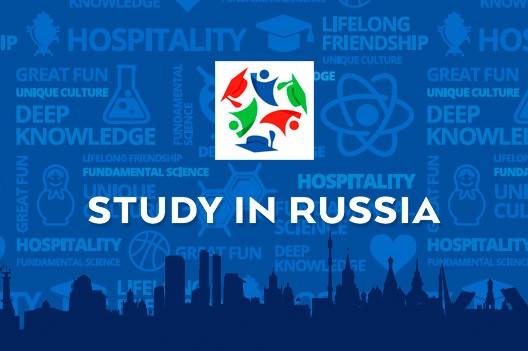- Абитуриенту
-
Обучающемуся
- Я – профессионал
- Локальные нормативные акты
- Образовательные программы
- Стоимость обучения
- Университет - обучающемуся
- Центр карьеры
- Учебный центр по маркировке
- Учеба и наука
- Школы мастерства
- Комфортная среда обучения
- Образовательные стандарты
- Стипендии и материальная поддержка
- Вакантные места
- Общежития
- Сотруднику
- Аккредитация специалистов
-
About University
- Mission & Brand Strategy
- University Leadership
- Rector's Welcome
- History
- Regulatory Documents
- Contacts
- Staff
- International Recruitment
- Partners
Applicants- Why Sechenov University
- Degree Programmes in English
- Preparatory Courses
- Non-Degree Programmes
- Transfer from other Institutions
14.04.2021Sechenov doctors talk about COVID-19 and pregnancy
The 3rd World Congress on Maternal, Foetal, and Neonatal Medicine took place in Venice (Italy) on 25–27 March 2021. The online event was organised by FIMPP — International Foundation for Maternal Periconceptional, Perinatal, and Neonatal Medicine.
The conference gathered the leading obstetricians, gynaecologists, neonatologists, and perinatologists from all over the world. The speakers included Roberto Romero (Perinatology Research Branch at NICHD/NIH, United States) and Gian Carlo Di Renzo (Chair of the Board of Directors, FIMPP & University of Perugia & Sechenov University).
Sechenov University was represented by the members of the Department of Obstetrics and Gynaecology at the Clinical Institute for Children’s Health: Prof Victoria Bitsazde, Prof Jamilya Khizroeva, and Head of the Department, Academician Alexander Makatsariya. Their report focused on the association between COVID-19 and thromboembolism in pregnant women. Here is a brief summary of the presentation.
The SARS-CoV-2 virus has literally turned the world upside down and become a clear example of the devastating alliance between cytokine storm, thromboinflammation, and immunothrombosis. Within a few months after the start of the pandemic, we realised that haemostasis disorders due to hyperinflammation played the leading role in the severity and adversity of the disease. In critically ill COVID-19 patients, haemostatic disorders are present in almost 100% of the cases.
The deleterious trio of hypercoagulation, inflammation, and thrombosis can result in arterial and venous thrombosis, as well as early and late miscarriages and placenta-mediated vascular complications. COVID-19 increases the risk of thromboembolism in pregnant women by almost three times, compared to pregnant women without COVID-19.
To help doctors deal with venous thromboembolism, the Royal College of Obstetricians and Gynaecologists (RCOG) has issued the green-top guideline. According to these recommendations, the SARS-CoV-2 infection should be considered as a transient risk factor. All pregnant women admitted to hospital with confirmed or suspected COVID-19 should be offered prophylactic low-molecular-weight heparin (LMWH) — unless birth is expected within 12 hours or there is a significant risk of haemorrhage. For women with severe complications of COVID-19, an appropriate dosage of LMWH should be discussed within a multidisciplinary team.
The guidelines recommend that women who stay at home and self-isolate during the pandemic should remain hydrated and mobile. During this time, a clinical risk assessment for VTE (venous thromboembolism) should be performed, and thromboprophylaxis needs to be considered and prescribed on an individual basis. Thromboprophylaxis for women who self-isolate should be continued until they recover from acute illness — between 7 and 14 days.
It is reasonable to start anticoagulation therapy in patients with COVID-19 as early as possible — to suppress the initial steps of crucial pathogenetic pathways of thromboinflammation.
The International Foundation for Maternal Periconceptional, Perinatal, and Neonatal Medicine (FIMPP) was established in 2019 with the idea to create a scientific structure to promote education, research, and advocacy in maternal, periconceptional, and neonatal medicine. The ultimate goal of the organisation is to improve the physical and mental health of women, mothers, and children through high-quality medical care.
FIMPP is developing several agreements with educational platforms and key international organisations — FIGO-GLOWM, IPA (International Paediatric Association), ICM (International Confederation of Midwives), WHO, and UNICEF.
Embed on website
Sechenov doctors talk about COVID-19 and pregnancy
The 3rd World Congress on Maternal, Foetal, and Neonatal Medicine took place in Venice (Italy) on 25–27 March 2021. The online event was organised by FIMPP — International Foundation for Maternal Periconceptional, Perinatal, and Neonatal Medicine.
The conference gathered the leading obstetricians, gynaecologists, neonatologists, and perinatologists from all over the world. The speakers included Roberto Romero (Perinatology Research Branch at NICHD/NIH, United States) and Gian Carlo Di Renzo (Chair of the Board of Directors, FIMPP & University of Perugia & Sechenov University).
Sechenov University was represented by the members of the Department of Obstetrics and Gynaecology at the Clinical Institute for Children’s Health: Prof Victoria Bitsazde, Prof Jamilya Khizroeva, and Head of the Department, Academician Alexander Makatsariya. Their report focused on the association between COVID-19 and thromboembolism in pregnant women. Here is a brief summary of the presentation.
The SARS-CoV-2 virus has literally turned the world upside down and become a clear example of the devastating alliance between cytokine storm, thromboinflammation, and immunothrombosis. Within a few months after the start of the pandemic, we realised that haemostasis disorders due to hyperinflammation played the leading role in the severity and adversity of the disease. In critically ill COVID-19 patients, haemostatic disorders are present in almost 100% of the cases.
The deleterious trio of hypercoagulation, inflammation, and thrombosis can result in arterial and venous thrombosis, as well as early and late miscarriages and placenta-mediated vascular complications. COVID-19 increases the risk of thromboembolism in pregnant women by almost three times, compared to pregnant women without COVID-19.
To help doctors deal with venous thromboembolism, the Royal College of Obstetricians and Gynaecologists (RCOG) has issued the green-top guideline. According to these recommendations, the SARS-CoV-2 infection should be considered as a transient risk factor. All pregnant women admitted to hospital with confirmed or suspected COVID-19 should be offered prophylactic low-molecular-weight heparin (LMWH) — unless birth is expected within 12 hours or there is a significant risk of haemorrhage. For women with severe complications of COVID-19, an appropriate dosage of LMWH should be discussed within a multidisciplinary team.
The guidelines recommend that women who stay at home and self-isolate during the pandemic should remain hydrated and mobile. During this time, a clinical risk assessment for VTE (venous thromboembolism) should be performed, and thromboprophylaxis needs to be considered and prescribed on an individual basis. Thromboprophylaxis for women who self-isolate should be continued until they recover from acute illness — between 7 and 14 days.
It is reasonable to start anticoagulation therapy in patients with COVID-19 as early as possible — to suppress the initial steps of crucial pathogenetic pathways of thromboinflammation.
The International Foundation for Maternal Periconceptional, Perinatal, and Neonatal Medicine (FIMPP) was established in 2019 with the idea to create a scientific structure to promote education, research, and advocacy in maternal, periconceptional, and neonatal medicine. The ultimate goal of the organisation is to improve the physical and mental health of women, mothers, and children through high-quality medical care.
FIMPP is developing several agreements with educational platforms and key international organisations — FIGO-GLOWM, IPA (International Paediatric Association), ICM (International Confederation of Midwives), WHO, and UNICEF.



